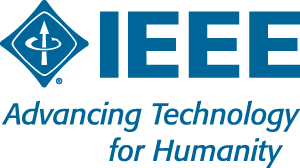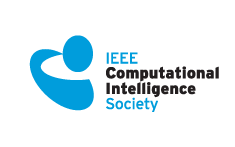2017 IEEE Symposium
on Evolving and Autonomous Learning Systems (EALS 2017)
The EALS 2017
Symposium will be a focal point for presentation of the recent advanced
research results and industrial applications in the emerging area of
evolving and autonomously learning systems. We live in the era of Big
Data and by that they mean high volume, high variability, versatility,
veracity data streams generated by Internet, sensors, organisations and
the society. Learning autonomously from this ocean of data and
extracting meaningful knowledge which is not fixed, but dynamically
evolving is one of the key challenges that the research community and
the post-industrial societies are facing now and will face in the near
future. The Symposium has established a track record of high quality
meetings of a relatively compact community of advanced researchers and
practitioners and aims to keep and build upon this with the current
event, EALS 2017.
Topics
New Adaptive and Evolving Learning Methods:
- Evolving in Dynamic Environments
- Drift and Shift in Data Streams
- Self-monitoring Evolving Systems
- Evolving Decision Systems / Evolving Perceptions
- Self-organising Systems/ Evolving Neuro-fuzzy Systems
- Neural Networks with Evolving Structure
- Non-stationary Time Series Prediction with ES
- Automatic Novelty Detection in Evolving Systems
- Stability, Robustness, Unlearning Effects
- Structure Flexibility and Robustness in Evolving Systems
- Evolving Fuzzy Clustering Methods
- Evolving Fuzzy Rule-based Classifiers
- Evolving Intelligent Systems for Time Series Prediction
- Evolving Intelligent System State Monitoring and Prognostics
- Evolving Intelligent Controllers
- Evolving Fuzzy Decision Support Systems
- Evolving Consumer Behaviour Models
- Robotics and Control Systems
- Industrial Applications
- Data Mining and Knowledge Discovery
- Intelligent Transport
- Bio-Informatics
- Defence
Accepted
Special Sessions
- Online Real-Time Strategies for Data Stream Mining
- Organizers:
Mahardhika Pratama, Nanyang Technological University, Singapore
Mukesh Prasad, University of Technology, Sydney, Australia
Edwin Lughofer, Johannes Kepler University, Austria
Plamen P. Angelov, Lancaster University, UK
Sundaram Suresh, Nanyang Technological University, Singapore
Chin-Teng Lin, University of Technology, Sydney
Symposium co-Chairs

Plamen Angelov
Lancaster University, UK
Email: p.angelov@lancaster.ac.uk

Dimitar Filev
Ford Motor Company, USA
Email: dfilev@ford.com

Nikola Kasabov
Auckland University of Technology, New Zealand
Email: nkasabov@aut.ac.nz
Program Committee
- Rashmi Dutta Baruah, IIT, India
- Abdelhamid Bouchachia, University of Bournemouth, UK
- Bruno Sielly Jales Costa, Ford Motor Company, USA
- Richard Duro, University of La Coruna, Spain
- Fernando Gomide, University of Campinas, Brazil
- Luiz Affonso Guedes, UFRN, Brazil
- Lazaros Iliadis, Aristotle University of Thessaloniki, Greece
- Jose Antonio Iglesias, University Carlos III, Spain
- Janusz Kacprzyk, Polish Academy of Sciences, Poland
- Dmitry Kangin, Exeter University, UK
- Andre Lemos, University of Campinas, Brazil
- Moamar Sayed Mouchaweh, University of Reims, France
- Suresh Sundaram, Nanyan Technological Univ., Singapore
- Teck-Hou Teng, Singapore Management Univ., Singapore
- Radu-Emil Precup, Polytechnic Univ. of Timisoara, Romania
- Witold Pedrycz, University of Alberta, Canada
- Araceli Sanchis, University Carlos III, Madrid, Spain
- Igor Skrjanc, University of Ljubljana, Slovenia
- Di Wang, Khalifa University, UAE
- Ronald Yager, Iona College, NY, USA
- Xiaojun Zeng, Manchester University, UK






